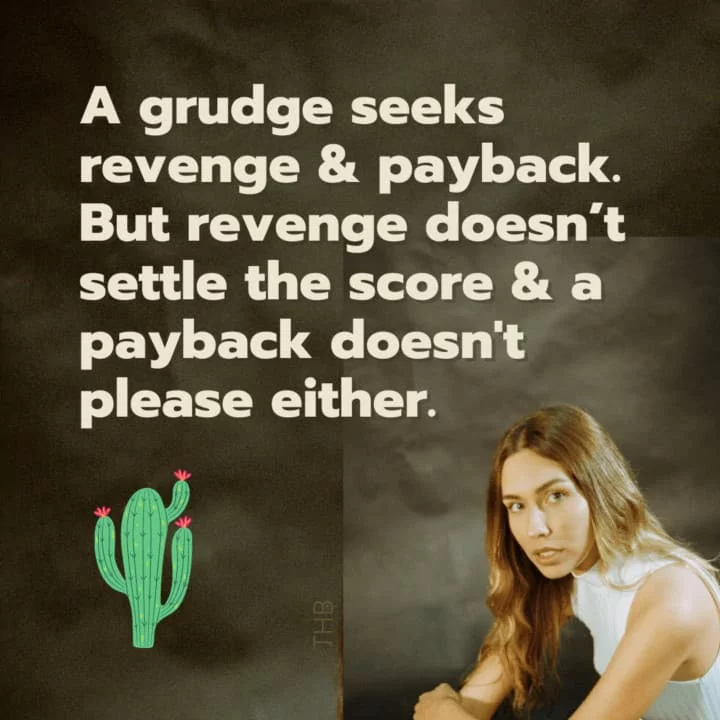Some friends waste your time, energy, and resources while giving you only criticism in return. You must know how to cut off these toxic friends without being rude or toxic yourself.
Did you know that adolescents and teens who smoke are more likely to have friends who smoke, which reinforces their decision to smoke?*
Our good friends give us meaning, support, and love. But our bad friends can leave deep scars on our mental and emotional health.
The issue is this: Toxic friends start out as good friends, but they show their true colors eventually. These friendships are often one-sided, draining, and even abusive.
Some signs of toxic friends are, they criticize your choices, minimize your achievements, exploit your kindness, and take from you without giving anything.

How To Cut Off Toxic Friends Without Being Rude?
Toxic friends are difficult to cut off because:
- You keep hoping they will change for the better with time.
- You believe they will be of some help to you in the distant future.
- You think they do not harm you so much that you have to break off.
None of that is a dependable truth.
Moreover, you ignore that your time and resources could be better spent somewhere else. Perhaps on a charitable service in your local community.
You must cut off that toxic friend, even if you’ve known them for a long time. And this is the rule to remember when you decide to do so:
You don’t have to be disagreeable to disagree.
Here are seven ways to cut off toxic friends without being rude:
1. Slowly drift apart from the friendship.
Drifting apart is a sensible and easy way to cut off a toxic friend from your life.
You meet them less and less, respond infrequently to their messages, and stop taking or returning their calls.
They may ask you why you don’t meet or talk to them as much as before, and you tell them you got busy. In fact, you replace their space in your life with optimal busyness (being happy-busy).
They too slowly lose interest in you and stop trying to connect with you as frequently.
Then you stop thinking about them.
Thus, you irreversibly move away from the toxic relationship without making the cut too obvious.
2. Abruptly end the unhealthy friendship.
You may end the friendship if you can’t get them to respect your boundaries with them.
This can be difficult, but realize that a toxic friend will never respect your boundaries.
Breaking all ties with a toxic person means you’re choosing your peace over being nice.
Things to consider when breaking off with a toxic friend:
- Be honest and direct about your decision to end the friendship.
- You may or may not give an explanation for your decision.
- Return their stuff and dues, like money, gifts, loans, etc.
- Avoid arguments, and focus on ‘I’ statements.
- Let your family and your other friends know.
- Be firm, but stay calm, and maintain respect.
Accepting that your happiness is more important than your friendship.
3. Make an informed, clean break from them.
This may be the best way to break off from a long-time friend who has been toxic for a while.
An informed, clean breakup involves three acts – preparation, execution, and maintenance.
Preparation
- Practice telling them the words to declare your decision to end the relationship.
- Write down a thank-you card or letter for their friendship.
- Note down everything you want to tell them.
- Pack everything you want to return to them.
Execution
- Ask them for their availability and time, and invite them to a safe and less busy place for “an important discussion.”
- You might take along a friend or family member to stay in the background if you think they might react unusually.
- Tell them about your decision to end the relationship, using your notes to mention everything that you want to, since it is the last time you’re talking to them.
- Listen to what they have to say in response. Hand them over what you want to return, asking them for anything else that you owe them.
- Thank them, wish them well, and hand them the thank-you card/letter.
Maintenance
- Block them from your contact list, social media, messenger apps, and emails.
- Get busy with other things, like a new hobby or a passion project.
- Avoid places that bring them to your memory.
- Discard anything that reminds you of them.
- Release them from your thoughts.
- Join a group or charity.
- Do things alone.
Toxic friends are not a good option, even if they are your last option for friendship.
4. Prepare to cope with the emotional fallout.
Cutting off a long-time friend can be emotionally difficult. Sadness may come with feelings of guilt, regret, or anger at yourself or them.
Experts suggest we embrace our negative emotions when things are hard, instead of trying to deny or avoid them.
Some ways to handle the emotional aftermath of cutting off a long-time friend:
- Don’t blame yourself or feel guilty for ending the friendship.
- Allow yourself to grieve the loss of your friendship.
- Take care of yourself physically and emotionally.
- Focus on the positive aspects of your life.
- Talk to a trusted friend or family member.
Write a self-compassion letter. See a clinical psychologist if you can’t cope with your difficult emotions.
5. Don’t hold grudges. Don’t seek revenge.
Toxic friends can take a severe toll on your physical health and mental well-being, even after you end the friendship.
However, you’d do yourself a great service by not harboring any grudges against them.

When you hold a grudge against someone, it hurts you more than the person you have a grudge against.
Research shows holding a grudge can harm your physical and mental health, deplete your energy, minimize your future success, and can lead to depression and anxiety.
Holding a grudge makes you hurt longer and heal slower.
A desire for revenge is a waste of time and energy. One revengeful act can turn into a spiral of revenge.
Making them pay you back does not please either of you. They might think they did too much to repay (over-compensation), while you might think they did not do enough (under-compensation).
Your “best revenge” against your toxic friend is what we discuss next – Forgiveness.
6. Forgive the wrongs of your toxic friend.
The first thing about forgiveness is that it is about you, not them.
Forgiving means getting rid of the harmful person from your mind, so they can’t hurt you anymore.
Forgiveness is an act of self-compassion that releases you from the negativity loop, allowing you to move on in your life with peace.
Forgiving means deciding to stop carrying the burden of the toxic past. It is letting go of your desire to harm them back, which especially flares up when you’re angry or drunk.
Forgiveness means you no longer care about them.
So, forgive and protect your mental peace.
7. Set boundaries and ask them to stop.
This may be a viable way to handle a toxic friend when you want to give them a chance to change positively.
Tell them to stop their harmful behavior immediately. They might take steps to change themselves if they recently turned toxic.
However, be aware that they will not support you forever. They are unkind and toxic by nature and will likely turn back to their old selves.
While setting boundaries, you must tell them what actions you will take, using “I” statements, if they violate your personal space.
You: “I will leave if you use another word of insult.”
They: “So, you feel insulted by my words?”
You: “Yes. And I want you to stop.”
Here are some tips for setting boundaries with toxic friends:
- Be direct and honest about your needs.
- Don’t be afraid to say ‘No’ to their requests.
- Don’t feel guilty about setting strict boundaries.
- Stick to your boundaries, even if they make you feel guilty.
Friend vs. Confidant
What’s the difference between a friend and a confidant?
Confidant
A confidant is someone you share your thoughts and feelings with and trust with your sensitive, private, or personal information. But a confidant may not be your friend.
Your confidants know your secrets and personal details, and they keep them safe.
However, they won’t share their secrets with you. They can’t be your friends because of this one-way relationship, even when you have known them for a long time.
Your lawyer and doctor are your confidants, but typically not your friends.
Friend
Friendships are based on mutual sharing of secrets and, usually, best friends are each other’s best confidants.
A good friend is a sensitive, trustworthy, and empathic confidant, and a successful friendship is based on trust and accountability.
You don’t just expect your friends to keep your secrets, you also count on them. They often make sacrifices without you asking. They’re with you in good times, routine times, and difficult times.
But toxic friends do the opposite:
- They rebuke you for failing and blame you for your troubles.
- They ridicule, exploit, and gossip about your secrets.
- They don’t help when you need it most.
Toxic friends are unsuitable to be your confidants.
*Study: Peer pressure to smoke: the meaning depends on the method, L. Michell, P. West, Health Education Research, March 1996.
Final Words
Toxic friends may seem unavoidable in our modern world.
Worse, there may be peer pressure to put up with them because they are popular or helpful.
Take-home messages:
- Don’t let peer pressure make you do something you don’t want to do.
- Stop being a “good friend” to a toxic friend, but keep your dignity.
- Don’t let a particular person have wicked fun at your expense.
- Don’t let a bad friend ruin your good day.
• • •
Author Bio: Researched and reviewed by Dr. Sandip Roy. His expertise is in mental well-being, positive psychology, narcissism, and Stoic philosophy.
√ If you liked it, please spread the word.